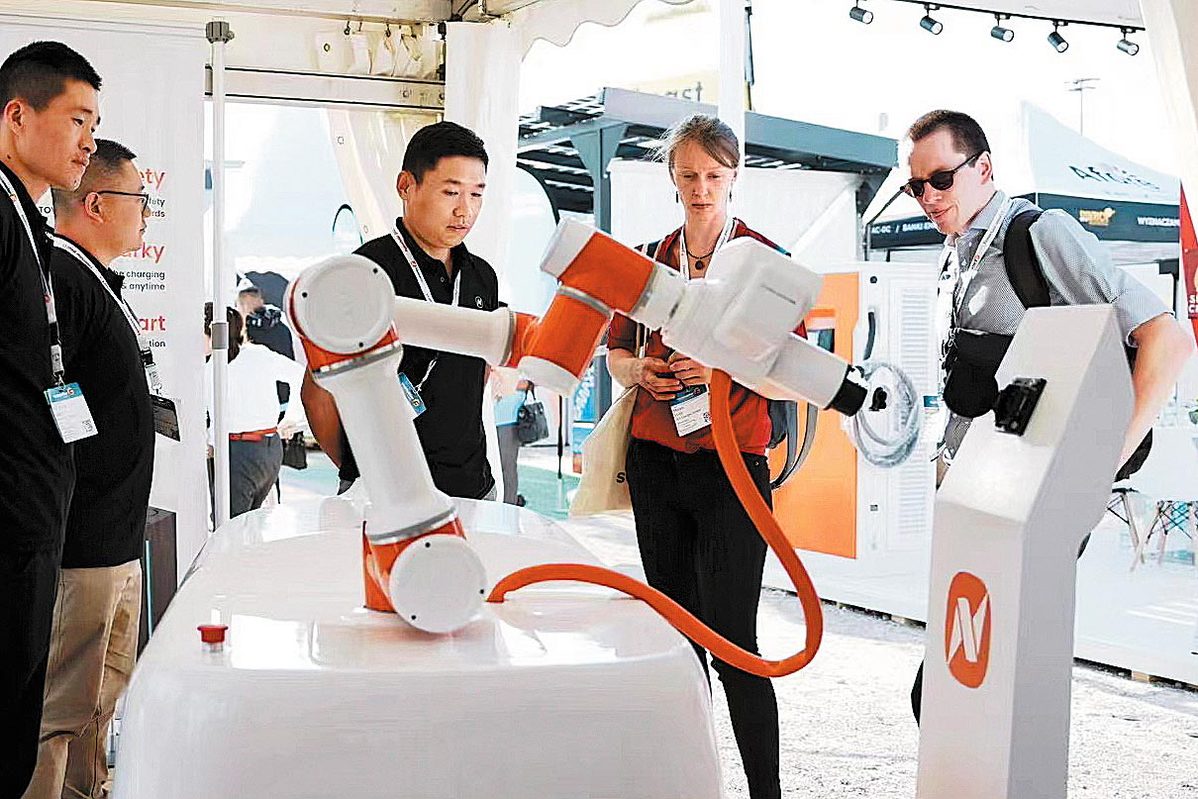Robots seen as key to overcoming EV charging challenges globally


As electric vehicles boom and bring about charging challenges worldwide, China is producing self-driving charging robots to juice up EVs as part of broader efforts for a more advanced EV ecosystem.
NaaS Technology, one of China's largest and fastest-growing EV charging service providers, recently launched such a robot that finds EVs, smart-charges them and collects payments automatically.
Leveraging V2X (vehicle-to-everything) technology, the robot parks itself precisely, automatically docks into an EV's charging port and, using a mechanical arm, charges it up, without human assistance. When the robot's battery runs out, it can recharge itself as well.
According to Alex Wu, NaaS Technology's president and chief financial officer, the robot eliminates the trouble of plugging heavy charging cables into EVs and waiting in a queue for a charging pile.
"China has the world's most developed EV charging market, a mature EV charging ecosystem, advanced EV charging solutions, and cost-effective charging and energy storage products," said Wu.
"Intelligent and unmanned EV charging will create a whole new experience and open up a massive market for smart charging, especially when autonomous vehicles drive into reality."
The company, China's first Nasdaq-listed EV charging service provider, had connected over 515,000 chargers by the end of 2022.
The company also claimed that the charging robot was independently developed by its team, whose members include former employees of Bosch, BMW and other globally reputable carmakers and technology companies.
NaaS is not alone in developing charging robot technology, as Volkswagen and Hyundai have recently revealed robot designs, albeit with different approaches to mobile power sources.
However, China seems to be a step ahead — in Hefei, East China's Anhui province, a total of 400 mobile charging robots have been put into use. Car owners can place an order through a WeChat mini-program that orders a charging robot to find EVs and replenish their cars.
Gotion High-tech, the developer of the charging robot, said that more efforts will be made to increase the number of robots to more than 1,000 by the end of this year.
Data from the Ministry of Industry and Information Technology showed that by the first half of this year, the number of charging points nationwide hit 6.928 million, a year-on-year increase of 74.1 percent.
But industry experts said that problems still exist with the failure of some charging piles and there can be difficulty in finding a charging pile.
Tong Zongqi, an official of charging and replacement at the China Association of Automobile Manufacturers, said that EV charging robots have become a new charging method with the boom of NEVs in the country.
"But in terms of commercialization, there are still no clear standards or paths for operation, asset management and commercial services of such robots. Further exploration and development are needed," Tong said.




































